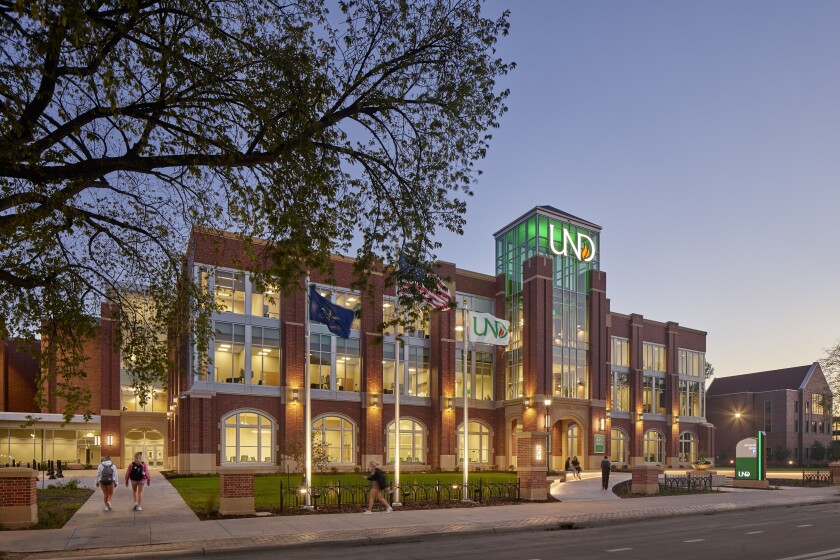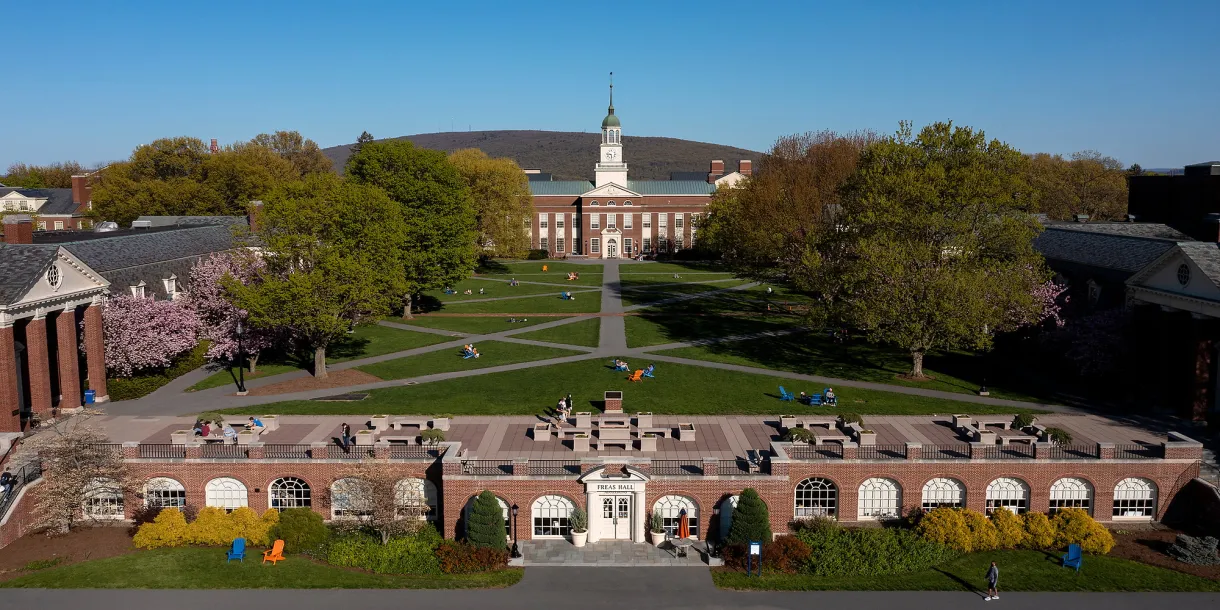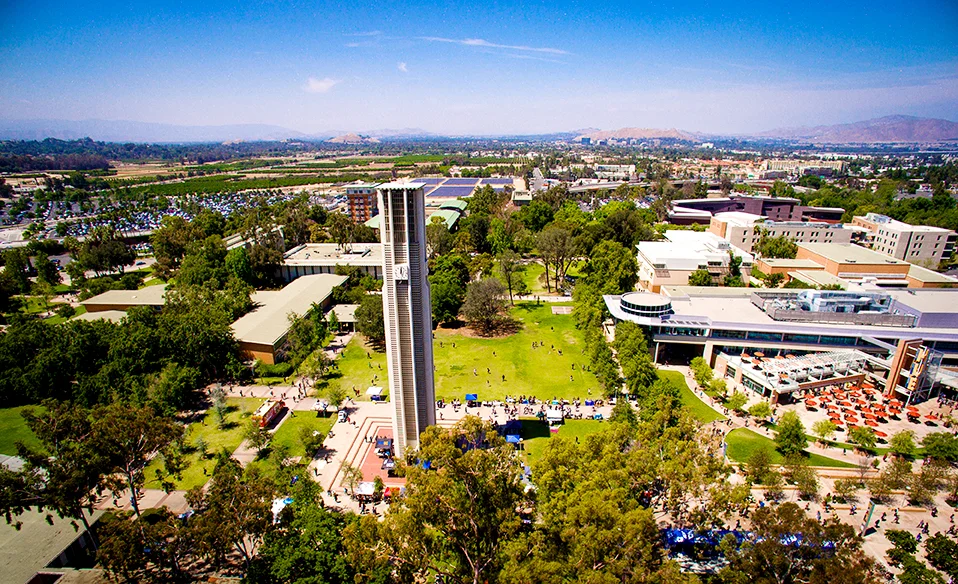The Comprehensive Guide to the University of New Hampshire
Introduction
Welcome to the comprehensive guide to the University of New Hampshire (UNH)! Whether you're considering applying to UNH, already a student, or simply interested in learning more about this esteemed institution, this guide aims to provide you with all the essential information about the University of New Hampshire. From its history and academic programs to campus facilities and student life, we will explore the various aspects that make UNH a top choice for students.
History of the University of New Hampshire
The University of New Hampshire, founded in 1866, is a public research university located in Durham, New Hampshire. With a rich history rooted in providing quality education, UNH has grown to become a leading institution of higher learning in New England.
Academic Programs
The University of New Hampshire offers a diverse range of academic programs across its colleges and schools, providing students with numerous opportunities for intellectual growth and career development. From STEM fields and business to arts, humanities, and social sciences, UNH offers programs that cater to various interests and career aspirations.
-
College of Engineering and Physical Sciences
- Mechanical Engineering
- Electrical Engineering
- Computer Science
-
Peter T. Paul College of Business and Economics
- Finance
- Marketing
- Entrepreneurship
-
College of Liberal Arts
- Psychology
- English
- History
These are just a few examples of the academic programs available at the University of New Hampshire. With distinguished faculty, state-of-the-art facilities, and a commitment to research and innovation, UNH provides students with a comprehensive and rigorous education.
Campus Facilities
The University of New Hampshire boasts modern facilities and resources that support academic pursuits, research endeavors, and student life. From libraries and research centers to recreational facilities, students have access to a wide range of amenities.
-
Dimond Library: The Dimond Library is the main library on campus, offering extensive collections of books, journals, and digital resources. It provides study spaces, research assistance, computer labs, and access to specialized databases and research tools.
-
Research Centers: UNH is home to several research centers and institutes that promote interdisciplinary collaboration and cutting-edge research. These centers provide students with opportunities to engage in hands-on research, contribute to advancements in their fields, and work alongside renowned faculty members.
-
Campus Recreation: The university's campus recreation facilities include fitness centers, swimming pools, sports courts, group fitness classes, and outdoor recreational spaces. Students can participate in intramural sports, join fitness programs, and take advantage of wellness resources to maintain a healthy and active lifestyle.
Student Life
The University of New Hampshire offers a vibrant and inclusive student life that complements the academic experience and fosters personal growth, leadership development, and community engagement. With numerous student organizations, campus events, and community service opportunities, students have ample avenues to pursue their interests, develop new skills, and form meaningful connections.
-
Student Organizations: UNH has a diverse range of student organizations, including academic clubs, cultural and ethnic associations, recreational clubs, and community service groups. These organizations provide students with opportunities to connect with like-minded individuals, explore their passions, and engage in activities that align with their interests.
-
Campus Events: UNH hosts a variety of campus events throughout the year, including guest lectures, concerts, performances, cultural festivals, and art exhibitions. These events contribute to a vibrant campus culture and offer students opportunities for intellectual enrichment, entertainment, and cultural exchange.
-
Community Service: The University of New Hampshire emphasizes the importance of community engagement and encourages students to get involved in service projects and volunteer initiatives. Through programs like the Center for Social Innovation and Enterprise and the Volunteer Action Center, students can make a positive impact in the local community and develop a sense of social responsibility.
Notable Alumni
The University of New Hampshire is proud of its accomplished alumni who have made significant contributions in various fields. These alumni serve as inspirations and exemplify the impact of a UNH education. Some notable alumni include:
- Sarah Silverman - Comedian, actress, and writer.
- Jane Librizzi - Chief Financial Officer of Iron Mountain Incorporated.
- William O'Brien - Former Speaker of the New Hampshire House of Representatives.
These individuals, along with many others, have achieved remarkable success in their respective careers and continue to make a difference in their communities.
FAQs
-
Q: How do I apply to the University of New Hampshire? A: To apply to the University of New Hampshire, visit the official university website and complete the online application. Be sure to review the application requirements, deadlines, and specific instructions for your desired program of study.
-
Q: What are the admission requirements for the University of New Hampshire? A: Admission requirements vary depending on the program and level of study. Generally, applicants are evaluated based on their academic performance, standardized test scores, essays or personal statements, letters of recommendation, and extracurricular involvement.
-
Q: Does the University of New Hampshire offer financial aid to students? A: Yes, the University of New Hampshire provides a range of financial aid options, including scholarships, grants, loans, and work-study programs. Students can explore the available opportunities and apply for financial aid through the Financial Aid Office.
-
Q: What is the student-to-faculty ratio at the University of New Hampshire? A: The student-to-faculty ratio at the University of New Hampshire varies depending on the program and level of study. On average, it is approximately 18:1, allowing for personalized interactions with faculty members and opportunities for mentorship and collaboration.
-
Q: Are there study abroad programs at the University of New Hampshire? A: Yes, the University of New Hampshire offers study abroad programs that allow students to gain international experience, immerse themselves in different cultures, and broaden their horizons. Students can explore the options available through the Center for International Education.
-
Q: What support services are available for students at the University of New Hampshire? A: The University of New Hampshire provides comprehensive support services to help students succeed academically, personally, and professionally. These services include academic advising, tutoring programs, career counseling, health and wellness resources, and accessibility support.
Conclusion
In conclusion, the University of New Hampshire offers a transformative educational experience characterized by academic excellence, research opportunities, and a vibrant campus community. With its diverse academic programs, renowned faculty, and state-of-the-art facilities, UNH prepares students to become future leaders and contribute to society. Whether you're interested in STEM, business, arts, or any other discipline, the University of New Hampshire provides a supportive and intellectually stimulating environment where you can pursue your passions and achieve your goals.

 By
By


